This is part of a month-long series that my teen daughter and I are writing about her life and learning to live with epilepsy. To start at the beginning, click here.
As we get ready to wrap up this series on epilepsy, one thing I have to note is that just as adults face different parenting issues as your kids grow, they have different needs as they grow. When Beth was younger, she would talk about epilepsy with anyone who asked. And she loved to be asked how she was doing. She even read a book about epilepsy aloud to her entire second-grade class.
But as she hit the teen years, her needs changed. She wants more privacy than ever right now and, just like any other young teen, she wants to be “normal” and fit in with people at her school. That’s awfully hard to do when you miss a lot of school, have to leave for the nurse’s office to get migraine meds, and have partial seizures during class.
After her disastrous year last year, she became known as “the sick girl.” So talking about epilepsy became something she wanted to avoid. As she said to me a couple of weeks ago, “I’m not a sob story. I just want to be a regular kid.”
Because of that, I was shocked when she told me she wanted us to write this series. But again, her needs are changing – she knows that in order for things to get better, more people need to be educated about epilepsy.
She wrote the following when she was angry about being treated like “the sick kid” and wanted me to post it here so that it might help other kids or parents as they navigate the teen years. Some of the questions seem innocuous and rather nice to me so I was really surprised when I read it. But any questions bother her right now. Because they probe too far and point out how different she is. And, as she points out, it hurts that she has to explain the very basics of epilepsy. So we adapt. And try to educate.
When I asked her what should someone ask when they find out a friend has epilepsy, she replied, “They should just say ‘Ok’ and move on. No one wants to be thought of as different.”
From Beth:
There are many things you shouldn’t say to someone with epilepsy. Things you shouldn’t say when you’re just finding out someone you know has seizures, when you’re asking them questions and all that. There aren’t many good things to say, but at least you’ll know what to avoid.
The other day my friend found out about my epilepsy and he asked what it was. When he found out it was a seizure disorder, he said, “Oh. So do you just start spazzing out at random times?”
NO. NEVER SAY THAT.
Why?
1) I’m not “spazzing out.” I am in the middle of a medical emergency.
2) There are multiple different kinds of epilepsy, not just tonic-clonic seizures.
3) You don’t say that to a girl anyway. Ever.
Some other things people have said over the years that are not okay:
-
What is it like having a seizure?
-
What causes it?
-
Can you control it (the epilepsy)?
Why you shouldn’t ask these:
-
If you have grand mals like I do, you’re unconscious. You don’t know.
-
If I knew what caused it, I’d be much more careful with what I’m doing.
-
Most of the time you can, but meds and surgery don’t always work.
I’m sorry if I sound a little bitter on the subject, but it’s hard to talk about and explain why I don’t like hearing those questions. To me, the answers seem obvious, and that everyone knows them like I do. But lots of people don’t. It hurts. It feels as though no one has heard of epilepsy when that’s all I’ve ever known.
*If you’d like to read all of our 31 Days posts about living with epilepsy, click on the button on the sidebar or start here. And if you’re wondering what the heck is going on and who Beth is, click here. 🙂
Related links:


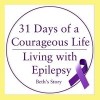





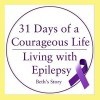

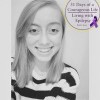
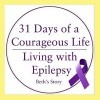
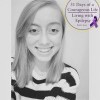


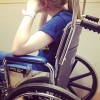
Leave a Reply